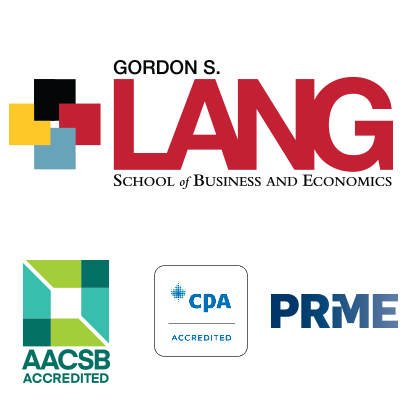

SSHRC supports postsecondary-based research, research training and knowledge mobilization in the social sciences and humanities. This SSHRC Spotlight series features U of G researchers in the College of Business and Economics who have received SSHRC funding this year.

What does your research focus on?
The overarching aim of this research is to improve life. It focuses on the role of financial governance within public procurement in Africa using a comparative approach between Anglophone and Francophone systems by drawing from the cases of Anglophone, Ghana and Francophone, Benin.
What problem or challenge are you addressing with research?
Public procurement is an important development lever. It represents 50 to 70 per cent of imports and accounts for 15 to 20 per cent of gross domestic product. As a result, it is used as a socio-economic policy tool to:
-
promote innovation, support emerging industries and small business, and build the infrastructures necessary for economic activities; and
-
provide social goods such as educational and health facilities (school building, hospitals, equipment, sanitation) and essential utilities (power, clean water), which are vital for poverty reduction and a main focus of the United Nations Sustainable Development Goals (SDGs).
However, public procurement in Africa represents a major leakage, estimated at more than six times the amount of development aid, which inhibit its ability to meet these essential social and economic needs. This research aims to address this by examining:
-
the nature of the procurement systems in place;
-
their intended role and function(s) in developing policy and goals, and how these are aligned;
-
the extent to which such roles/functions are perform with respect to achieving the intended development goals and why; and
-
the role of government accouting therin, if any
What is your research approach?
The research will employ a case study approach using Ghana and Benin as research sites. Case studies allow for in-depth understanding of - and insights about - the subject matter within its context, which is the aim of the proposed study. The units of analysis are the procurement agencies - Ghana Public Procurement Authority and Benin's Autorité de Régulation des Marchés Publics - and related institutions, such as supreme audit institutions or internal control. This will also extend to the different sectors and related government actors (such as the Ministry of Economy and Finance, Ministry of Health, Ministry of Power), non-state actors (World Bank, IMF, USAID, Global Affairs Canada) and bidders.
What impact do you hope this research will have?
The impacts sought are beyond academic publications, in terms of knowledge advancements. Insight from the research, particularily regarding public procurement, struggle to deliver its expected socio-economic and development promises, and the role of accounting within. This research can help with the development of future policy reform iniatives and practices.
These are also important for aid policy of international development agencies, such as Global Affairs Canadian, USAID, World Bank, etc., who are very active in the field in Africa. The ultimate expectation is the policy and practice change that might follow, and their translation into improved living conditions of the population.
What's next?
The ultimate aim of this research project is the improvement in socio-economic conditions and the consequent improvement of life. Nevertheless, this is unlikely without a change in policy and approach. As a result, a series of workshops involving key stakeholders in public procurement in the studied countries will be organized, in an effort to disseminate the findings and engage policy debates.
A related research project is under consideration, and will follow once the current research is near completion. This project is about the implementation of Sustainable Development Goals initiatives in local communities where issues of poverty and inequality are more acute.
